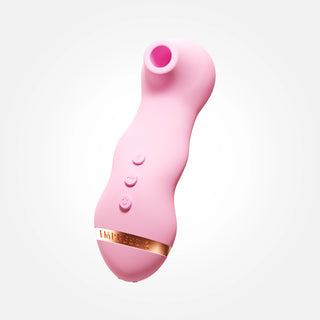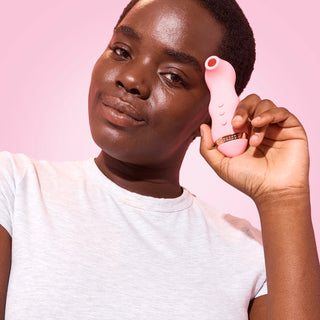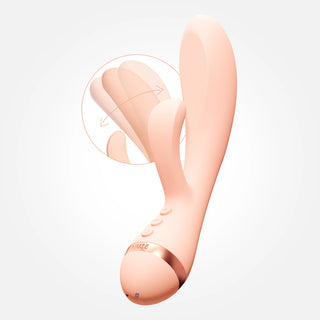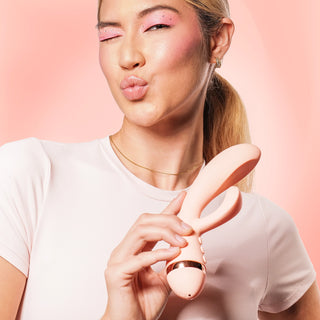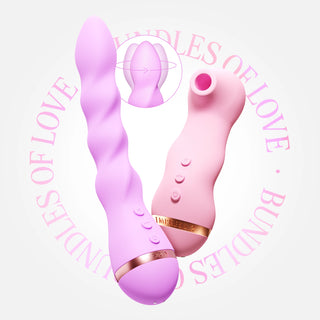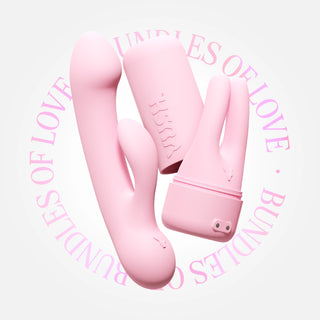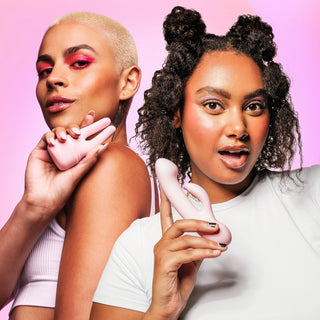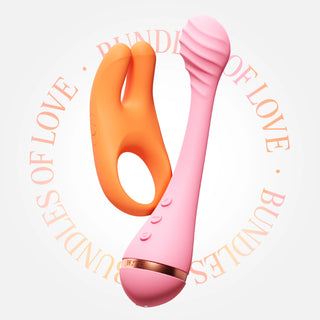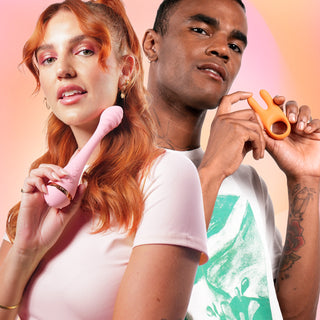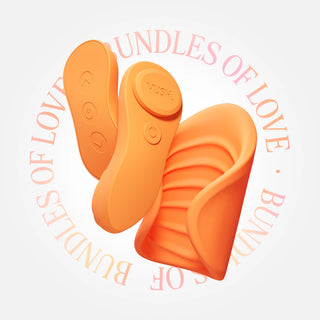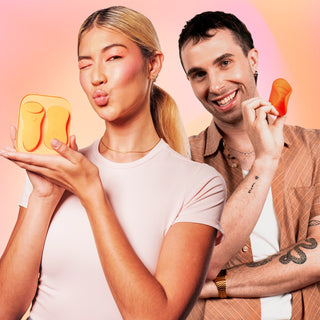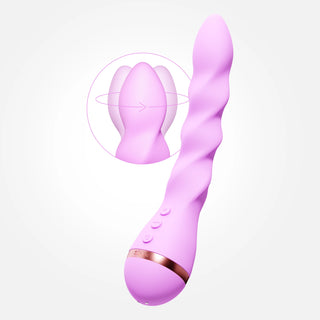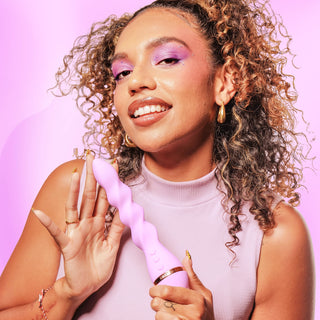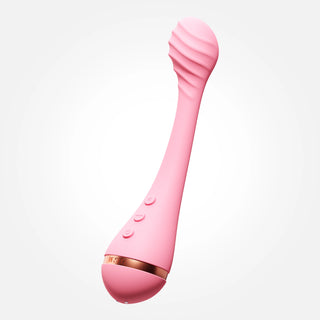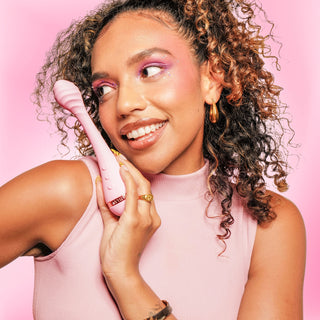To anyone who has recently given birth, although it may not feel like it right now, you can make pleasure a priority. It’s completely normal for people to take some time before wanting to connect with their bodies again after birth, please don’t rush this process. The postpartum period involves a lot of biological and social change, which can be extremely overwhelming (to say the least). With this in mind, if you do think you’re ready to invite more sensuality into your postpartum life, here are our six tips for reclaiming your sexuality after birth.
Tip 1: Prioritise alone time
Ever since conception (or even before then), this baby has been your top priority. It’s time to make time for you. If it’s possible, lock in your parents, best friend or nanny once a week/fortnight/month so you can schedule some regular time away from the chaos of being a parent to a newborn. If you have a partner or are co-parenting, it might be beneficial to spend time away from that person too, and just focus on you.
Parenthood can make you feel like you’re your own last priority. Book in some time to do an activity that makes you feel like yourself, whether it’s getting creative with art, going to see a local band live, getting lost in a book in bed, or being pampered at your favourite day spa. If you’re not giving yourself alone time to listen to what you need, sexy time will most likely remain low on your priority list.

Tip 2: Understand your hormones
Hormones are responsible for a lot of the changes you’ve been going through. After the baby is born, progesterone and oestrogen levels drop dramatically, triggering the natural “baby blues” period that many people experience in the first two weeks postpartum. From then on, if you’re breastfeeding, hormone levels will be different again. In other words, there are hormonal explanations for why you don’t feel like yourself right now. It’s okay to show yourself some compassion and expect some from those around you.
Please be mindful that if symptoms of depression, anxiety and irritability persist for a few months or even years after birth, this could be classified as postpartum depression. We recommend speaking to a healthcare professional if you are struggling. For postpartum depression support and information on transition to parenthood, please view or reach out to organisations such as PANDAS or Mind.
Tip 3: Accept your body
Body image can significantly impact our sex lives, and it’s no secret that pregnancy and labour changes the way your body looks and feels. Rather than rushing into exercise to “get your body back” or “lose the weight” after birth, why not take a self-acceptance approach? You have just created and grown life! It might help if you try to view all those bodily changes as a source of pride, a sign of all that you’ve achieved. To help with the process of self-acceptance, we recommend creating supportive social circles. Unfollow Instagram accounts that don’t make you feel good. Surround yourself with people that don’t value “bouncing back” as a priority after birth. It’s okay to set boundaries and disengage from that harmful narrative. Give yourself permission to exist as you are. You deserve pleasure no matter how you feel about your body.

Tip 4: Schedule (goal-free) intimacy
Dedicating time for intimacy and pleasure is important, but not to be confused with pressure to have regular penetration or expectations of mind blowing orgasms. Be honest with yourself (and if it’s relevant, your partner) about what you want from your sex life and what you can realistically achieve. Goal-oriented sexual activity is not your friend right now. Instead, tune in to your body and listen to what it craves in those moments of dedicated intimacy. For more information on scheduling sex and intimacy, read our 5 Tips and 5 Benefits of Scheduling Sex and Self Pleasure.
Tip 5: Prioritise outercourse
If you’ve given birth vaginally, intercourse is probably the last thing on your mind right now. You may be familiar with “the 6 week go ahead”, which is the medically recommended time to wait before having sex after birth, but this is not for everyone (or let’s be real, most). It’s okay if it takes a lot longer than 6 weeks for you to feel comfortable with the idea of intercourse (or the idea of becoming pregnant again!). Same applies for those who have had a caesarean birth. You’ve gone through a major surgery! You need and deserve time for recovery.
If you do want to be sexually intimate, outercourse is a great way to go. Outercourse is sex that doesn’t include intercourse, for example, kissing, sensual massage, oral sex, external vibrators or mutual masturbation. Reframing sex to focus on outercourse can do wonders for your sex life, whether you’ve just had a baby or not. Start small and turn yourself on little-by-little by reminiscing about a sexy memory, sending a dirty text to a partner or giving them a few extra kisses and hugs. Sex is sex even without penetration.
Tip 6: Slowly ease into it
If you do feel that you are ready for intercourse, be sure to take it extra slow. Half the intensity you have in your mind right now, then half it again. Be aware that, even months after birth, pain during postpartum intercourse is common, so go gently. Try sex positions that allow the person that has given birth to be in control of the pace and angle, for example, cowgirl. Use lube to ease discomfort. Remember, things may feel different, especially if this is your first birth, so go with the flow and be open to finding new ways to enjoy pleasure.




